Fighting for change: Jeffrey Maxner’s mother on grief and finding purpose
This is the second of a three-part series looking at crime, the lingering effects of that trauma and what families are doing to try to change Canada’s justice system. The mothers of Bradley Pogue and Jeffrey Maxner share their heartbreaking stories and, in part three, we’ll look at the criteria the parole board considers before granting parole to offenders.
Joanne Maxner lost faith in the court and sentencing process after the death of her son Jeffrey. The 34-year-old was fatally shot outside Brantford General Hospital on New Year’s Day in 2018.
“I always thought it was the justice system,” she says over the phone. “But it’s the criminal justice system.”
Maxner feels families – who are also victims of violent crime – are often left out the equation.
Like Bradley Pogue’s killer, who we discussed in the first part of this series, the man who shot Jeffrey will soon be up for parole. That prospect has totally upended Joanne Maxner’s life.
Remembering Jeffrey
Maxner says her son will always be remembered for his big heart.
“He helped everybody,” she recalls. “If he saw homeless people [and] he didn’t have food on him, he would go home and he would get food. He’d either cook it or he’d bring it down there and start a fire, get blankets, clothes, whatever.”
One good deed really sticks out in her memory.
“He was staying with his father and his father had a garage and a shed. So he made up a little room and he let a homeless man stay there, just to keep him warm. He helped a lot of people who were down on their luck because, like I used to say, don’t judge a person by their looks.”
Jeffrey also loved spending time at the river.
“On his days off he would go and take his dog,” Joanne Maxner recalls. “He’d go down and play music and he’d always take extra garbage bags because he’d clean up the river.”
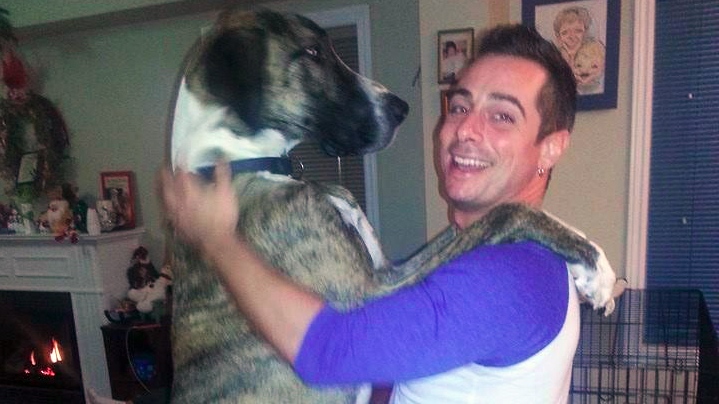 Jeffrey Maxner, 34, was the man killed in a shooting in Brantford on Jan. 1, 2018.
Jeffrey Maxner, 34, was the man killed in a shooting in Brantford on Jan. 1, 2018.
Jeffrey’s impact is still being felt by those whose lives he touched.
“There were so many people at his funeral, and people I didn’t know would come up to me. I still get messages saying: ‘You didn’t know me but I knew your son. One time I was suicidal and I reached out to your son,’ or ‘Your son knew something was going on with me and he helped me. He saved my life.’ Or: ‘I was homeless and didn’t have anywhere to go. Your son opened the door and let me in.’ To this day I get messages from people telling me they miss him and the world lost a bright life.”
Jeffrey’s caring nature is also what led to his murder.
The day Jeffrey died
Joanne Maxner says the night Jeffrey died he was trying to help a friend who had a drug problem.
“Because the mother asked him, her mother begged my son,” she explains. “My son had a big heart. He knew her brother, they were really good friends. He felt like he was responsible to try to help her. He just wanted to make her do better in life.”
On New Year’s Day 2018, Jeffrey was with this friend when she went to meet another man in the parking lot of a pharmacy near Terrace Hill Street and St. Paul Avenue, across the street from Brantford General Hospital.
At trial, court heard that a man named Joel Scalzo fired five gunshots into Jeffrey’s vehicle and one of those bullets struck him in the back. Jeffrey was then taken to the hospital’s emergency room.
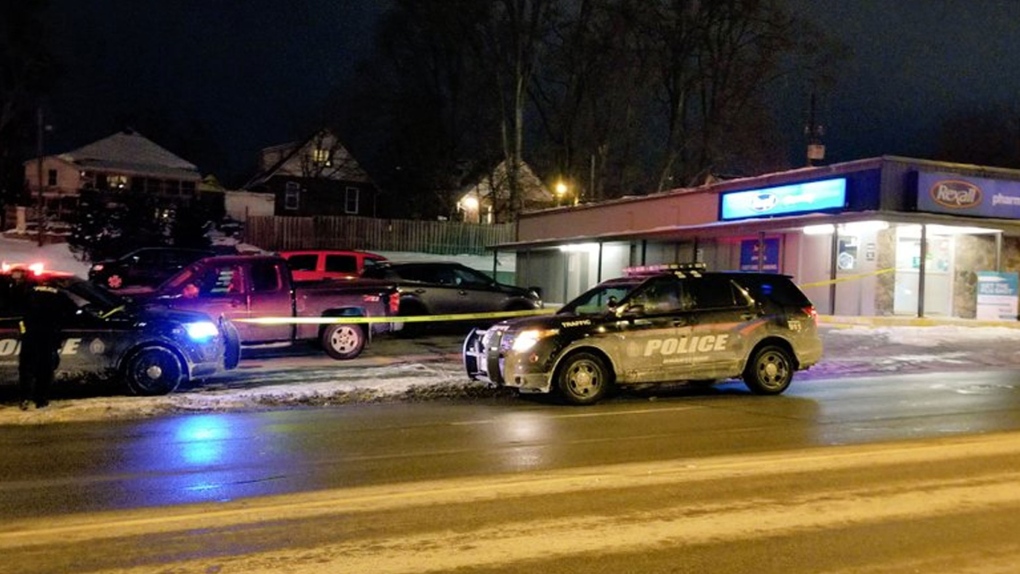 Police respond to the scene of a fatal shooting in Brantford Monday January 1, 2018. (Dave Ritchie)
Police respond to the scene of a fatal shooting in Brantford Monday January 1, 2018. (Dave Ritchie)
Joanne Maxner says she arrived at the scene not long after.
“I just made it to my son’s truck, the doors were open and I could see the blood in the car. The police ran at me and asked: ‘What are you doing? You’re not supposed to be here.’ I didn’t even remember the yellow line, they had it all blocked off, but I can’t even remember going through it. I don’t even know how I got to the hospital.”
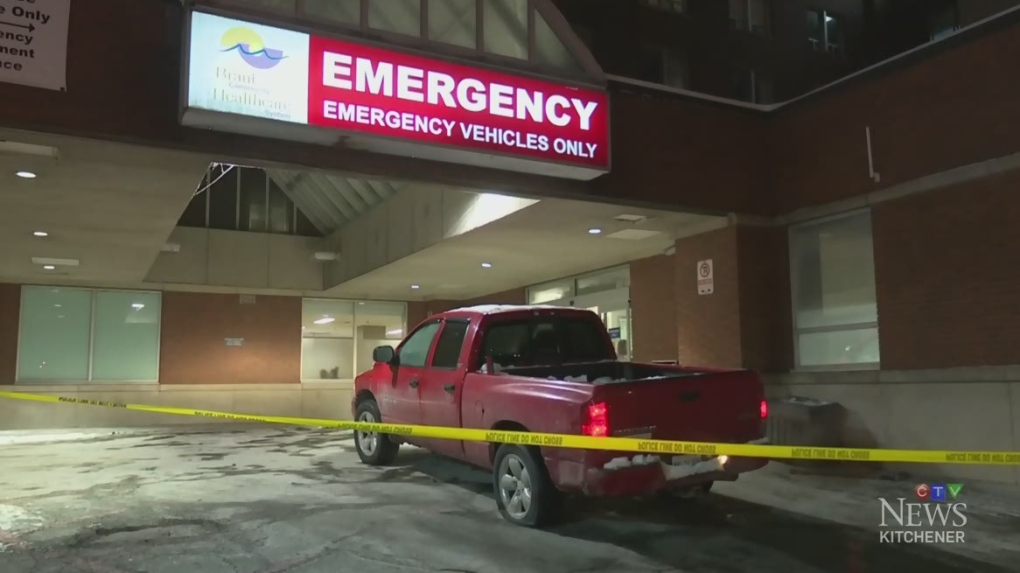
Because of the shooting, the hospital was in lockdown.
“I was begging the police to let me [in], please let me go to my son,” Maxner recalls. “They couldn’t. They said: ‘No, we can’t.’”
Jeffrey died shortly after he arrived in the emergency room.
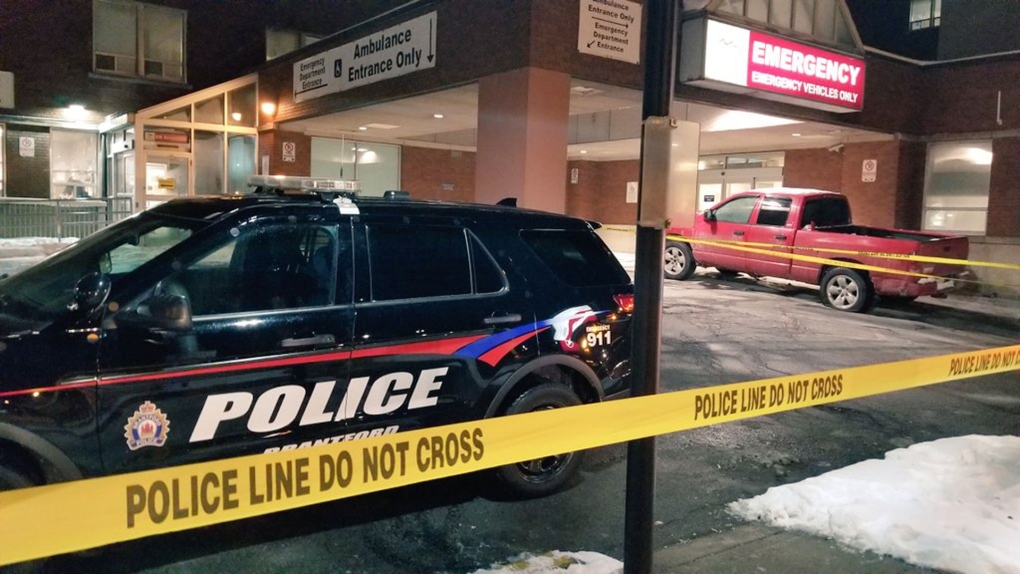 Police respond to Brantford General Hospital Monday January 1, 2018. (Dave Ritchie)
Police respond to Brantford General Hospital Monday January 1, 2018. (Dave Ritchie)
Criminal case
Five days after Jeffrey was fatally shot, Scalzo was arrested for uttering threats and charged with 11 counts of drug possession for the purpose of trafficking. While in police custody, he was also charged with first-degree murder and three counts of unauthorized possession of a weapon.
In July 2020, Scalzo pleaded guilty to the lesser charge of manslaughter. According to the agreed statement of facts, he admitted to shooting the vehicle but said he didn’t intend to hurt Jeffrey.
Joanne Maxner didn’t feel Scalzo was remorseful, saying one particular day in court really stood out to her.
“[Scalzo] stood up and turned around and looked at me and said: ‘It is what it is.’”
Scalzo was ultimately sentenced to 13 years behind bars but due to time already spent in custody, he would only serve nine years and four months in a federal penitentiary.
He is eligible for parole this year.
Grief and frustration
“You try to do the best you can and try to find some joy, but you just hide a lot,” Joanne Maxner explains over the phone. “You’re putting on a mask and sometimes you just fall to your knees. The system brings you to your knees.”
Her family wanted to move forward with Scalzo’s court case but Maxner says the Crown went ahead and made a deal with the prosecution and the family was told that if they didn’t accept the proposed sentence then the Jordan clause (also known as the Jordan decision) would come into play. It sets the timeline for when a trial must be heard – within 18 months of charges being laid. If a defendant isn’t tried within that period, they could be set free.
The Maxners felt they had no choice but to agree to the suggested sentence.
Scalzo, who had been in police custody for 24 months at that point, was given an enhanced credit of 44 months for time already served due to the COVID-19 pandemic and institutional lockdowns.
Joanne Maxner feels her family was misled about the process.
“He was supposed to do nine years and so many months but now, just over three years later, he’s up for day parole,” she says. “Why do you put this false hope in somebody, thinking: ‘OK, the streets are safe for nine years?’”
Before Scalzo’s sentence was officially handed down, the court heard from Maxner’s family and friends. In all, 49 victim impact statements were submitted to the court. There were so many that a second hearing had to be set.
“My poor niece and nephews, it tears them up having to write these [victim impact] statements and they’re crying. When they were up in the court reading their statements I can feel their pain. It broke my heart. I said to them: ‘Your cousin, he’s looking down on you and is so proud.’ And probably his heart would have been broken for them to have to go through that. But the system doesn’t see that.”
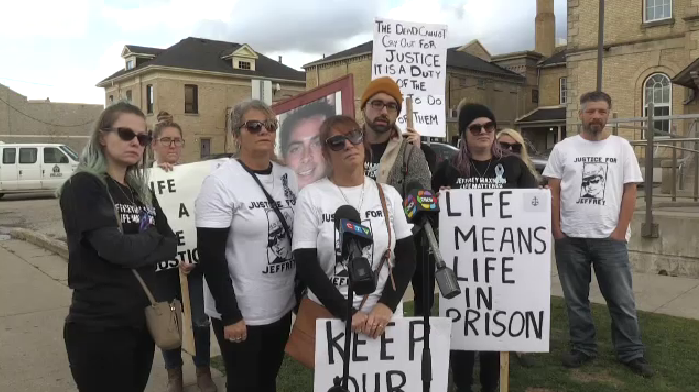
The years since Scalzo’s sentencing haven’t been any easier.
Maxner recently had to write another victim impact statement ahead of Scalzo’s potential parole. That was submitted back in March. She’s still waiting to hear if her son’s killer will be let back out into the community.
“I just wish the justice system would bring back justice to the victims,” she says. “[When] he took Jeff’s life, he took my life. I’m not the same mother. His father is not the same father. My other son, I see the suffering in my son daily. His children adored the only uncle they had. To this day, my grandchildren say: ‘Nanny, I don’t want to say Uncle Jeff’s name because I don’t want you to be sad.’ And I say: ‘No honey, say his name all the time.’ They say: ‘I miss Uncle Jeff.’”
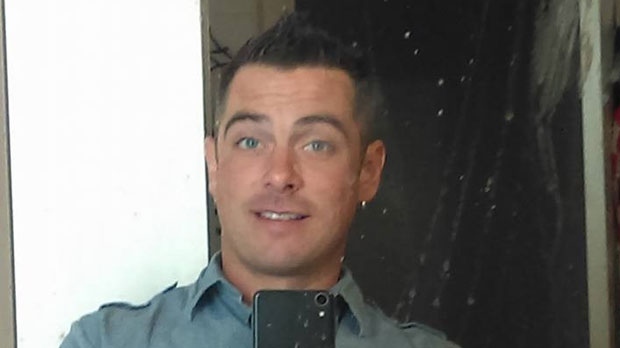 Jeffrey Maxner, 34, of Brantford, died as a result of gunshot injuries. (Source: Facebook)
Jeffrey Maxner, 34, of Brantford, died as a result of gunshot injuries. (Source: Facebook)
Her grandchildren also worry about what will happen when Scalzo is released from prison.
“They’re scared that he’s getting out and he’s going to take their father [Jeffrey’s brother] or them,” she says. “They’re scared for their lives now. These little kids didn’t have to grow up like this.”
The stress is so great that some of Maxner’s family has decided to move away from the Brantford area.
“My oldest son [Jeffrey’s brother] is taking his family… and getting out of this province because he’s told me: ‘I can’t stay here mom,’” she says. “I’m now going to lose all my grandchildren. I have nieces and nephews that have already moved away from Brantford because of what happened. I had to move away from our house too.”
She wishes she could follow her son and his family but that won’t happen anytime in the near future.
“My husband has Parkinson’s so I can’t just pick up and go with my son,” Maxner explains. “[My husband’s] waiting to hopefully get brain surgery and that could be a year or so. I’m going to be stuck here by myself.”
Despite the challenges, Maxner is determined to keep going.
“Every time this comes up, it’s hard to get out of bed,” she says. “It’s a fight for me every day. But I’ve got to try because I have another son and he lost his only sibling.”
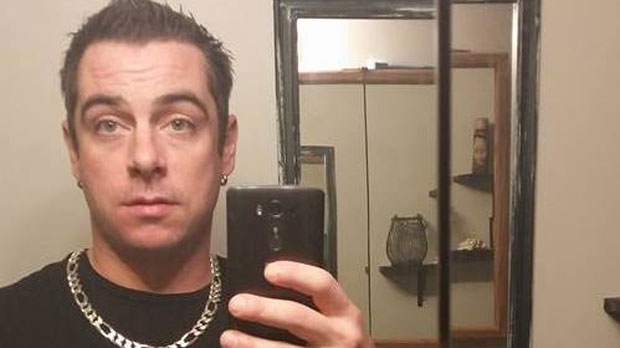 Police confirmed Jeffrey Maxner was shot and killed on New Year’s Day in Brantford. (Source: Facebook)
Police confirmed Jeffrey Maxner was shot and killed on New Year’s Day in Brantford. (Source: Facebook)
Fighting for change
Joanne Maxner has lost family but she’s also found community through tragedy.
Those who have gone through similar experiences continue fighting to change Canada’s justice system, as well as advocate for better representation for victim’s families. Rallies have been held across the province with support from Rodney Stafford, whose daughter Tori was murdered in 2009 after being abducted while walking home from her Woodstock school; Sharlene Bosma, whose husband Tim went missing on a test drive and his remains were later found on a North Dumfries farm; and Hayley Schultz, who shared her story in the first part of this series.
Maxner says she’s planning on going to a demonstration next month in Peterborough.
“You know other people have got it just as bad as you and your heart goes out to them because they’ve constantly got to fight. Rodney Stafford, he constantly has to fight to keep [Tori’s offenders] in [prison]. As a victim, you shouldn’t have to fight to keep somebody that murdered your loved one in. But you go to rallies and you go to Ottawa and you try to make some sense of it.”
Jeffrey’s violent death was not the first Joanne Maxner had to learn to survive. She says her brother was also shot and killed back in 1990.
Yet, she’s still trying to find some good out of her heartbreak.
“I’ll do whatever is in my power to try to help somebody else, so another family doesn’t have to go through this,” she says. “What else are you going to do? It’s going to eat you away because that's what it feels like in your soul. That’s all that’s on your mind day in and day out. You go for a walk and then you look at the sun and then the sun makes me cry because my son loved the sun, loved the summer.”
Her family has also found other ways to honour Jeffrey’s memory.
“Thanksgiving, Easter, Christmas, birthdays, we set a place for him at the table. My granddaughter will grab a plate, write his name on the nametag and put out a fork and knife and all that for him,” Maxner says. “You have to mention their name. They were here. They were a person.”
If you are struggling after experiencing a loss, please reach out to a local support group. You can also find additional information on the following websites:
CTVNews.ca Top Stories

Air Canada walks back new seat selection policy change after backlash
Air Canada has paused a new seat selection fee for travellers booked on the lowest fares just days after implementing it.
Province boots mayor and council in small northern Ont. town out of office
An ongoing municipal strike, court battles and revolt by half of council has prompted the province to oust the mayor and council in Black River-Matheson.
3 law officers serving warrant are killed, 5 wounded in shootout at North Carolina home, police say
Three officers on a U.S. Marshals Task Force serving a warrant for a felon wanted for possessing a firearm were killed and five other officers were wounded in a shootout Monday at a North Carolina home, police said.
'Shocked and concerned': Calgary principal charged with possession of child pornography
A Calgary elementary school principal has been charged with possession of child pornography, authorities announced Monday.
Health authority confirms cockroaches at B.C. hospital, insists they 'do not bite'
The Vancouver Island Health Authority is downplaying what staff describe as a cockroach infestation in a medical unit of Saanich Peninsula Hospital.
Toronto police arrest 12 people, lay 102 charges in major credit card fraud scheme
Toronto police say 12 people are facing a combined 102 charges in connection with an investigation into a major credit fraud scheme.
Winner of US$1.3 billion Powerball jackpot is an immigrant from Laos who has cancer
One of the winners of a historic US$1.3 billion Powerball jackpot last month is an immigrant from Laos who has had cancer for eight years and had his latest chemotherapy treatment last week.
Britney and Jamie Spears settlement avoids long, potentially ugly and revealing trial
Britney Spears and her father Jamie Spears will avoid what could have been a long, ugly and revealing trial with a settlement of the lingering issues in the court conservatorship that controlled her life and financial decisions for nearly 14 years.
WATCH 'Double whammy': What happens if you don't file your taxes by the deadline
The clock is ticking ahead of the deadline to file a 2023 income tax return. A personal finance expert explains why you should get them done -- even if you owe more than you can pay.

































